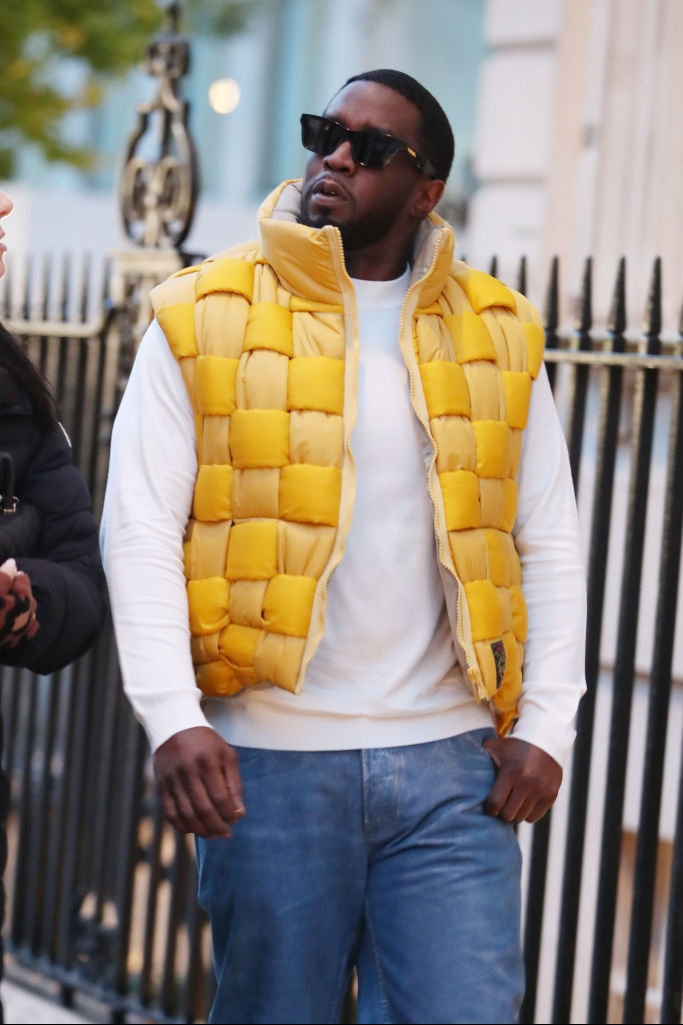In recent shocking news, Sean “Diddy” Combs, one of the most prominent figures in hip-hop, has found himself behind bars, facing serious charges related to s** trafficking. While the world watches the legal battle unfold, another alarming detail has surfaced: Diddy reportedly refuses to eat any of the food served to him while in custody. His decision has raised questions and sparked conversations about the reasons behind this unexpected choice. Let’s explore the possible motives and implications surrounding Diddy’s actions during his time in jail.
Diddy’s Arrest and Legal Battle

The arrest of Sean Combs, better known as Diddy, sent shockwaves through the entertainment industry. The 54-year-old hip-hop mogul was arrested in Manhattan after an extensive investigation by federal authorities. This investigation, spanning multiple states, including California and Florida, led to raids on his homes in Los Angeles and Miami.
Facing accusations of physical and s****** abuse, Diddy was denied bail, even after offering a $50 million bond. The charges against him are grave, including coercion, blackmail, and the orchestration of drug-fueled encounters referred to as “Freak Offs.” These allegations come from several individuals, including his ex-girlfriend, singer Cassie Ventura, who has publicly accused him of abuse. With the trial looming, Diddy’s time in jail has become the center of speculation, particularly due to his refusal to eat the food provided to him.
Fear of Poisoning: The Root of Diddy’s Paranoia
One of the most cited reasons for Diddy’s refusal to consume jail food stems from extreme paranoia. According to Larry Levine, a former inmate familiar with the same facility where Diddy is currently held, the music icon fears for his life. Levine, in an interview with Ashleigh Banfield on NewsNation, revealed that Diddy believes he could be poisoned while in custody.
“Imagine if someone paid someone off on the inside to poison his food, give him a heart attack, and he dies,” Levine explained during the interview. This fear is not entirely unfounded, considering Diddy’s high-profile status and the immense power and influence he has held throughout his career. The paranoia, however, appears to have worsened following his arrest, with Diddy reportedly questioning who he can trust within the facility.
The Impact of High-Profile Status in Jail
Diddy’s concerns are amplified by his celebrity status. Being a public figure with a multi-million-dollar empire, Diddy’s notoriety makes him a potential target. High-profile inmates often face unique challenges, including the possibility of being exploited or harmed for monetary gain or notoriety. Levine emphasized how easy it could be for someone with the right financial incentive to bribe a correctional officer to tamper with his meals.
“If somebody got to one of the correctional officers, and this could happen. They don’t make a lot of money, and there’s people out there that he’s got stuff on that do have a lot of money,” Levine stated. This insight paints a picture of the vulnerabilities Diddy might feel while incarcerated, particularly in light of the high stakes surrounding his legal battles and the media frenzy around his case.
Jail Conditions: The Reality of Isolation and Prison Food
In addition to paranoia, the conditions inside the facility where Diddy is being held could also contribute to his refusal to eat. Levine disclosed that the food served in isolation, often referred to as the Special Housing Unit (SHU), is typically cold, unappetizing, and nutritionally poor. Inmates in isolation, like Diddy, receive their meals last, leading to concerns about the freshness and quality of the food.
“The food is bland, it’s a lot of carbohydrates. It fills you up but you get sick eating it. There’s mold in a lot of that food. Maybe he got sick from the food, that’s another possibility,” Levine shared. These harsh conditions might be another reason for Diddy’s refusal to eat, as consuming low-quality food could contribute to further anxiety, especially for someone who is accustomed to a different lifestyle.
Psychological Strain and Suicide Watch
Diddy’s mental health is reportedly under close observation. Since his incarceration, he has been placed on suicide watch, with a psychiatrist visiting him several times a day. This level of attention suggests that the psychological toll of his arrest and subsequent confinement has been severe. His refusal to eat may be a manifestation of the mental strain he is experiencing, as well as a symptom of his deep-seated fear and paranoia.
“He’s really, really paranoid. He’s really, really scared. Doesn’t know what to think, he doesn’t know who to trust or what to believe,” Levine mentioned. This intense emotional distress has led to the involvement of mental health professionals, dieticians, and religious advisors in an effort to help Diddy cope with the extreme pressures he is facing.
Health and Wellness Concerns in Custody
Beyond the immediate psychological concerns, Diddy’s refusal to eat raises broader health concerns. Jail food, often laden with carbohydrates and lacking essential nutrients, poses a risk for inmates over time. For someone in a fragile mental state, malnutrition can exacerbate paranoia, anxiety, and depression, creating a vicious cycle of physical and emotional decline.
Visits from dieticians suggest that jail officials are aware of the potential dangers Diddy faces by refusing food. However, without addressing the root causes of his fear, it’s unclear how this situation will be resolved in the long term. His high-profile status continues to draw attention to his every move, placing even more pressure on his already precarious mental health.
Conclusion: The Complexities of Diddy’s Situation in Jail
Diddy’s refusal to eat in jail is far from an isolated incident. His actions reveal a deeper layer of paranoia, fear, and psychological stress linked to his high-profile status and the serious charges he faces. Concerns about potential poisoning, the subpar quality of jail food, and the intense scrutiny he is under all contribute to his decision to avoid eating.
As his legal battle continues, the combination of mental health challenges and the strain of jail conditions will undoubtedly play a crucial role in how his time in custody unfolds. For now, the world watches as Diddy navigates this complex and harrowing chapter of his life, one that extends far beyond the courtroom and into the psychological and emotional toll of incarceration.


